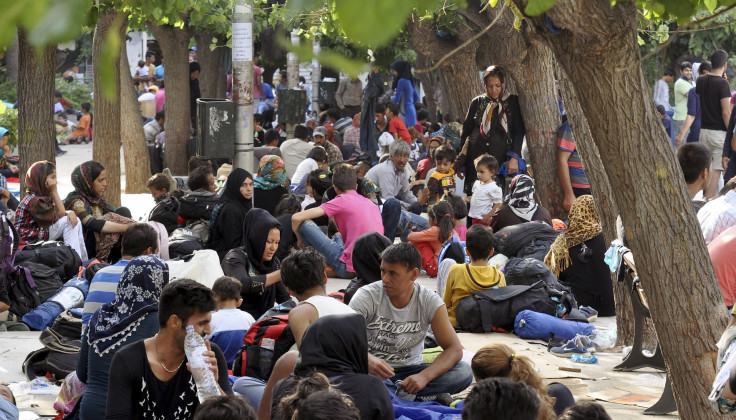Europe divided over refugee crisis

European countries struggling with the massive influx of refugees are experiencing deeper differences amongst themselves over the confusion. Syrian refugees are still entering into Hungary in large numbers through the Balkans, which compelled the Austrian authorities to cancel cross-border train services.
Germany, leading Europe in tackling the refugee crisis, said that the EU decision to distribute 160,000 new arrivals among the member states is merely a drop in the ocean. The eastern countries, especially the ones that are in the frontline, also protested against the decision, saying they would not accept the binding quotas from Brussels.
German Foreign Minister Frank-Walter Steinmeier is expected to meet with the eastern European states in Prague on Friday to persuade them into accepting the deal. Europe is facing the biggest refugee crisis since the World War II and is greatly divided on how to solve the problem. While some are taking hard measures to stop the influx, others have opened their doors.
On Tuesday, the Hungarian police claimed that 3,321 refugees crossed into Hungary within just 24 hours before any strict any refugee law came into play or the weather conditions worsened.
Germany, on the other hand, has already accepted 450,000 migrants this year and has urged the 28-nation group to accept more refugees. But the quota has already unsettled the eastern European nations. It still needs to be sorted out through a special summit.
“It is inappropriate to talk about mandatory quotas, calculated on an extremely bureaucratic basis, almost like an accountancy exercise I might say, without consulting member states,” the AFP quoted Romanian President Klaus Iohannis as saying.
Slovakian Prime Minister Robert Fico shares similar thoughts as Mr Iohannis in respect of the refugee crisis. He said that he doesn’t wish to “wake up one day and have 50,000 people here about whom we know nothing.”
The United Nations agency for refugee has issued a warning on Tuesday that Hungary should expect 42,000 more refugees by next week. Most of the refugees are fleeing conflict and poverty from countries like Syria, Afghanistan and Pakistan and have undertaken rough journeys across the Mediterranean to reach Germany.
Contact the writer at feedback@ibtimes.com.au, or let us know what you think below.





















